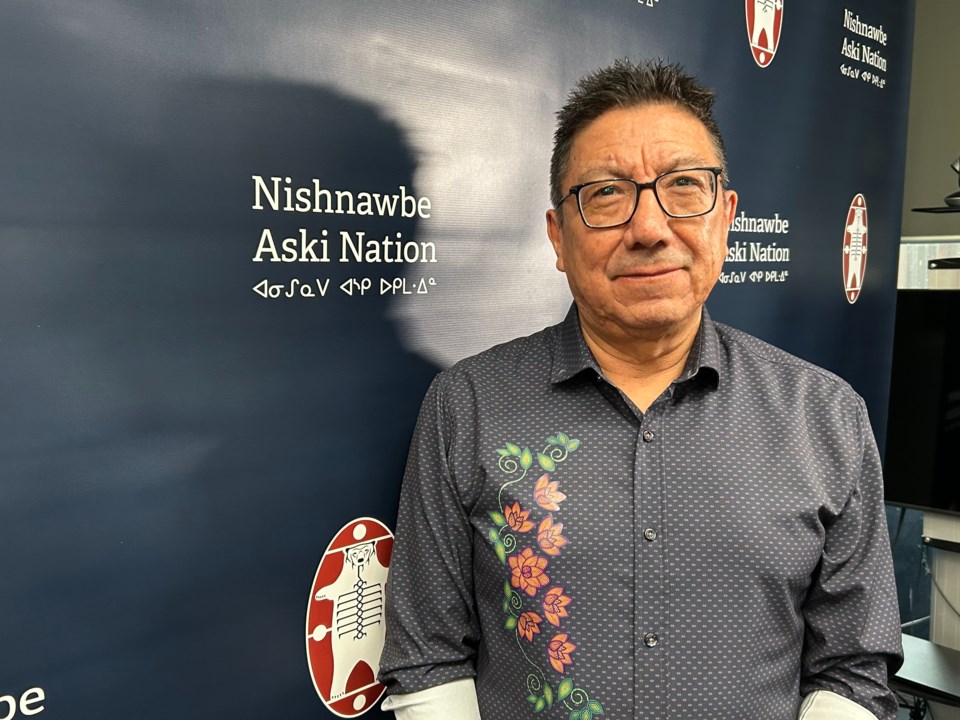OTTAWA — After meeting with senior federal ministers and listening to Canada’s Prime Minister, the leader of the Nishnawbe Aski Nation says he can’t accept the Building Canada Act as-is.
NAN Grand Chief Alvin Fiddler was one of many Indigenous leaders from across Canada that attended a summit in Gatineau on July 17 with Prime Minister Mark Carney and other senior ministers. The large-scale meeting was organized over widespread opposition by First Nations to the Building Canada Act — a piece of legislation which is part of the broader Bill C-5 — that aims to fast-track projects deemed to be in the “national interest,” particularly those around energy security, natural resource development and the economy.
“We heard words like 'duty to consult' and 'free, prior and informed consent' from Prime Minister Carney and his ministers, but the problem that we have is that those words are not included in the (act),” Fiddler told Newswatch in an interview Friday, a day after the summit wrapped up.
“They're essentially asking us to trust them, but as many of our chiefs said yesterday, ... we don't trust what they're telling us. And that's the problem.”
The Nishnawbe Aski Nation represents 49 First Nations across northern Ontario.
In a public address during the summit, Carney said the Building Canada Act “is only a way of starting a conversation and starting a process,” and pledged several times that projects will be done with full participation with Indigenous communities.
Fiddler’s concerns over the inclusion of principles like free, prior and informed consent in the process were echoed by Linda Debassige, the Grand Council Chief of the Anishinabek Nation.
“This is not merely consultation, it requires a process of meaningful engagement where our communities have the opportunity to fully understand the potential impacts of a project, provide their free and informed consent, and participate in decision-making,” she said in a statement.
“This consent must be obtained before any exploration, development or resource extraction activities commence.”
Opponents of the act — including a coalition of nine Ontario First Nations who are seeking a court ruling declaring sections of Bill C-5, along with Ontario’s similarly-styled Bill 5, unconstitutional — say it allows the Crown to “ram through” such projects “without meaningful or any engagement with First Nations.”
Fiddler said, given how hastily the summit was organized, he felt it was “a bit of a gong show,” and he wasn’t happy that First Nations leaders weren’t allowed to have legal counsel or technical support staff present. He also said it was “difficult to witness” the exclusion of over 50 NAN youth delegates from the proceedings.
The timing was also problematic for a number of NAN communities, he said, as many representatives from the territory were not able to attend due to ongoing forest fires — including multiple-day power outages for several First Nations.
Fiddler pointed to many communities still having to grapple with the effects of long-term underfunding of infrastructure that ensures things like clean drinking water, safe housing, proper education facilities and emergency services to show there is “no level playing field for our communities to effectively engage in these processes.”
“If they're currently being displaced (by) forest fires or if they don't have access to clean, safe drinking water, if they don't have access to adequate housing, that really puts them at a disadvantage,” Fiddler said.
Ojibways of Onigaming Chief Jeff Copenace also travelled from his community, southeast of Kenora, to attend the summit in order to highlight the importance of ensuring economic interests don’t dominate the need to fix a number of longstanding health and social issues in First Nations.
“We're not against development, we're not against the economy,” he told Newswatch in an interview from the National Capital Region prior to the summit.
“We want to be part of it, but we really need the social situation in our community to be addressed if we're really going to be true partners in this confederation.”
During his speech Carney led by stating the summit was about “the future of our economies and how we weave them together so that they're stronger together — how we can build a new economy together.”
Aside from that, Carney said further development can “provide the resources for health, for education and social services that our people deserve.”
“It's about giving ourselves more than any foreign government can ever take away.”
The Prime Minister insisted that the economic value of such projects will be “shared with First Nations as partners,” and pledged that the government will consult and “build opportunities for equitable economic prosperity, partnership and full participation in major projects.” He also touted the creation of a new Indigenous advisory council.
Fiddler said there was no indication at the summit there would be any amendments to the Building Canada Act to formalize things like free, prior and informed consent. He said he didn’t get the opportunity to speak with Carney directly, but said he did meet with Indigenous Services Minister Mandy Gull-Masty and stressed that each region is unique and federal officials need to listen to their distinct concerns and priorities.
“We need to do further work on creating a forum where our leadership can effectively engage in this very important national conversation that is happening right now,” he said.
